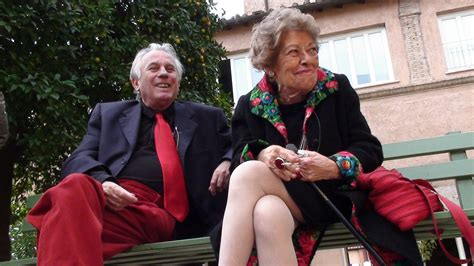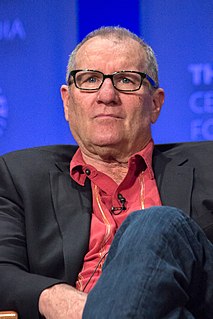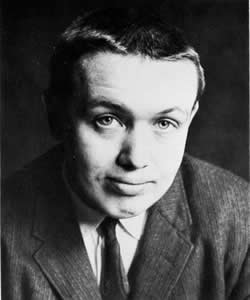A Quote by Giovanna Cau
We [ with Italo Calvino] had a great relationship. I don't think it's a coincidence that his only daughter's name is Giovanna. I loved his book dedications to me: "To Giovanna Cau, another book that won't be turned into a movie."
Quote Topics
Related Quotes
Because he did not have time to read every new book in his field, the great Polish anthropologist Bronislaw Malinowski used a simple and efficient method of deciding which ones were worth his attention: Upon receiving a new book, he immediately checked the index to see if his name was cited, and how often. The more "Malinowski" the more compelling the book. No "Malinowski", and he doubted the subject of the book was anthropology at all.
I'd say the purest experience for the movie is not to have read the book because I think when you've read the book you're just ticking off boxes. I think that after you see the movie, reading the book is a cool thing. I always say the movie's not meant to replace the book. That's ridiculous. I'm a huge fan of the book.
Wayne Wang, the director of Because of Winn-Dixie the movie, understood the book and transferred as much of the feeling of the book onto film as humanly possible. I think he did a fabulous job. And also I'm thrilled because the movie brings people to the book - people that wouldn't know about the book - and that's a great thing.
I loved the movie theater so I always saw a lot of movies. And then there was a play, I saw in the local paper, they were having auditions for a play of a book I had read. Which was One Flew Over the Cuckoo's Nest by Ken Kesey. So I said, "oh, I've read this, so I'm perfect for the part of the lead." His name is escaping me.
Walden is the only book I own, although there are some others unclaimed on my shelves. Every man, I think, reads one book in his life, and this is mine. It is not the best book I ever encountered, perhaps, but it is for me the handiest, and I keep it about me in much the same way one carries a handkerchief - for relief in moments of defluxion or despair.
If my novel gets any attention in Bulgaria, it will be as a scandal: a book about a teacher at a famous school and his relationship with a prostitute. I doubt very much it will be evaluated on its merits as literature. If Bulgarian were the book's only language, that would be painful and limiting to me as a writer. Since my book also exists in English - where it isn't scandalous at all - I feel comfortable with the possibility of scandal.
I was in a store in Halifax, Nova Scotia that I love, sort of like an environmental friendly sort of store. But they had a great book section. So I went in there all the time. The woman who worked there - which I feel so bad; I've forgotten her name - she handed me the book and she said, "Hey, you should read this. I think it would make a good movie." I remember reading the back of it and I was like, "Huh." Then I just devoured the book and I was so moved by it and said, "Why don't we start developing this into a film?" So that's how it ['Into the Forest'] all started.
He loved me. He'd loved me as long as he he'd known me! I hadn't loved him as long perhaps, but now I loved him equally well, or better. I loved his laugh, his handwriting, his steady gaze, his honorableness, his freckles, his appreciation of my jokes, his hands, his determination that I should know the worst of him. And, most of all, shameful though it might be, I loved his love for me.
Wormholes were first introduced to the public over a century ago in a book written by an Oxford mathematician. Perhaps realizing that adults might frown on the idea of multiply connected spaces, he wrote the book under a pseudonym and wrote it for children. His name was Charles Dodgson, his pseudonym was Lewis Carroll, and the book was Through The Looking Glass.
You are about to begin reading Italo Calvino's new novel, If on a winter's night a traveler. Relax. Concentrate. Dispel every other thought. Let the world around you fade. Best to close the door; the TV is always on in the next room. Tell the others right away, "No, I don't want to watch TV!" Raise your voice -- they won't hear you otherwise -- "I'm reading! I don't want to be disturbed!" Maybe they haven't heard you, with all that racket; speak louder, yell: "I'm beginning to read Italo Calvino's new novel!" Or if you prefer, don't say anything: just hope they'll leave you alone.
He held the book up to his nose. It smelled like Old Spice talcum powder. Books that smelled that way were usually fun to read. He threw the book onto his bed and went to his suitcase. After rummaging about for awhile, he came up with a long, narrow box of chocolate-covered mints. He loved to eat candy while he read, and lots of his favorite books at home had brown smudges on the corners of the pages.
Is it like a Harry Potter thing?" He turned his head then. "A what?" "A Harry Potter thing," she said again. "You know, don't say Voldemort's name because you might attract his attention?" He considered it. "You mean the children's book." "I have got to get you to watch more movies," she said. "You'd enjoy these. Yes, I mean the children's book.































